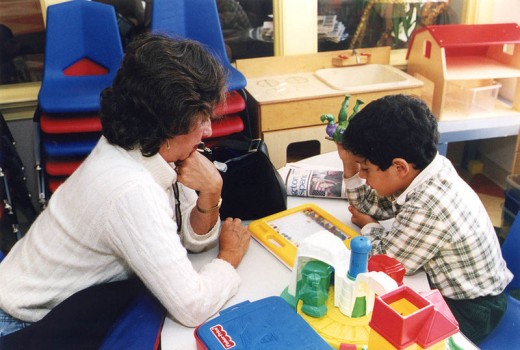Tutoring: A Guide for Parents

Hiring a tutor can be a smart move (see my other hub for why you should and shouldn't hire a tutor) and one I strongly encourage--both as someone who wants to see students succeed and someone who makes their living off of tutoring.
But it seems that parents are a little iffy on the concept. Here are some things to remember when you hire a tutor...
1. Do your research.
Hiring a tutor can be a complicated process. You want someone who's experienced, reliable, and overall a good fit for your child. While some of these you're going to have to just cross your fingers and hope for the best, you can cut back on the process considerably by doing research. Email the tutor beforehand and ask what their specialties are: do they normally work with high school students or do they work with elementary and middle schoolers? Do they have experience in helping kids cram for the SATs or do they focus on daily schoolwork?
If your kid has any disabilities or is struggling with one particular subject, that can be good to know, as well. There are tutors who specialize in working with kids with ADD or ESL speakers.
Asking all of these costs you nothing and will save you time and money in the long run. If the tutor says they work with "anybody", be wary--it usually means you're not going to get a good deal.
2. Give at least a day's notice before a lesson is scheduled.
I often have parents call me and ask if I'm available in two hours to give a lesson. This is extremely frustrating. I have a social life that is routinely put on hold because I never know when I'm going to have to work and it doesn't give me time to adequately prepare.
Tutoring is more than showing up. It's also about putting together lessons tailored to the student's needs, reviewing material to find out where the student is so you don't give them something either beneath or above their level, and also just getting ready. Yes, I can show up in two hours, but it won't be nearly as productive than if you give me notice to prepare.
Also, it's just rude.
3. Know your expectations before hiring.
This seems pretty simple. If you're going to go buy curtains, you measure the window first to make sure you're only looking at the right sizes, and while I'll encourage you not to think of tutors as curtains, it is a helpful analogy.
The site I do some of my work through asks tutors to post a picture on their profile, which I happily did, as it increases traffic. I then had a woman contact me to help her son with his English, only to have her immediately back out once I replied because she had apparently taken a look at my profile and decided that I was too attractive and would be a "distraction" for her teenage son.
While I completely understand her position, she could have saved me some insult and time if she had looked up front at my profile and not contacted me in the first place; though she was very polite and diplomatic in her wording, it's still discouraging to know that even though I'm very qualified, my looks were more important in her decision of whether or not to hire me.
So if you know you can't work with someone for whatever reason, try to find that out upfront instead of waiting until you've already contacted them.
4. Let your child know your expectations as well.
There is nothing more awkward than working with a student who would rather spend the time texting their friends or are completely unresponsive as I'm trying to give them a lesson. It's frustrating because it means that I'm basically talking to myself, but I also don't have any authority to tell them to put their phone away or to interact with me. That's where you, as a parent, come in. You do have the authority, and if you're paying for me to come to your house to give a lesson, I would think that you've got some concern and want your child to do well. So let them know what is and isn't okay.
Think of it as a classroom. Do teachers allow kids to play games on their cell phones during class? No? Then let your child know it's not appropriate to do it when the tutor is trying to give a lesson.
5. Don't hover.
It's completely okay to check by and see how things are going and I would even actively encourage you to do so. It can be a good way to gauge the effectiveness of a tutor and let you know if your child is paying attention or getting anything out of it.
But sitting in on the lesson can be a bad idea. For one, it makes the tutor feel awkward, because you are essentially our bosses, and if we're busy trying to make sure we're making you happy, it can distract us from giving the best lesson. It can also put your kid on edge, because he's worried about getting something wrong in front of his mom or dad.
Mistakes are going to happen, and they're actually a good thing. They can help tutors pinpoint trouble areas and work to improve those problems. If a student is getting things wrong just because he's nervous, or not speaking up when she doesn't understand something, it can throw off the whole lesson and lead to a less than productive meeting.
6. Pay up.
This shouldn't have to be said. I am working. This is a job. And though I do get attached to my students and genuinely want to see them succeed and improve, I'm still not volunteering to do this and the gas pump still doesn't accept "good feelings" to fill up my car. If a plumber comes by to fix your sink, you don't tell him that you'll pay him next time, so be prepared and have the cash or check ready so that you can pay immediately after the lesson is over.
Also, it puts both of us in a less awkward position: if I don't want to work with you for whatever reason, or you don't think I'm a good fit for your child, neither of us wants another unproductive meeting before we can part ways.








